The House of Commons Library published a comprehensive research briefing by Louisa Brooke-Holland on June 20, 2023, outlining the functions, structure, and progression of NATO since it was founded in 1949.
The North Atlantic Treaty Organisation, or NATO, was established as a shield for collective security and to counter the threat from the Soviet Union.
Initially, it was “an alliance of ten European and two North American states – the UK, Belgium, Canada, Denmark, France, Iceland, Italy, Luxemburg, the Netherlands, Norway, Portugal, and the United States”, as outlined in the briefing by Brooke-Holland.
Central to NATO’s essence is Article 5 of the North Atlantic Treaty, which proclaims that “an armed attack against one shall be considered an attack against them all.” Interestingly, the briefing by Brooke-Holland points out that “Article 5 does not necessarily commit an ally to a military response” but mandates they assist by taking “such action as it deems necessary, including the use of armed force, to restore and maintain the security of the North Atlantic area.” It’s noteworthy that Article 5 was summoned for the first time following the 9/11 attacks in the US.
Membership has swelled over the years and the briefing highlights that Finland joined as the 31st member on April 4, 2023. In June 2022, NATO invited Sweden and Finland to join. However, the completion of Sweden’s joining process remains up in the air, as “every NATO member except Turkey and Hungary has ratified Sweden’s accession protocol.”
Countries can become members through Article 10 of the Washington Treaty. The briefing by Brooke-Holland explains, “Any European state may be invited by unanimous agreement to ‘further the principles’ of the Treaty and to ‘contribute to the security of the North Atlantic Area.’ NATO often says it has an ‘open door policy’.”
Decision-making is by consensus and involves the North Atlantic Council (NAC), which is “the principal political decision-making body at NATO, and each member country has a seat on the council.” The NAC, chaired by the Secretary-General, meets at least weekly.
Funding for NATO comes from both direct and indirect contributions from member countries. Direct contributions are predicated on Gross National Income. The briefing mentions the principle of “common funding”, which bankrolls NATO’s core budgets.
Indirect funding arises when “allies commit capabilities or troops to a military operation”, and the member state bears the costs themselves.
Regarding defence expenditures, the briefing mentions the 2% target, established at the 2006 Riga Summit. This stipulates that “2% of a member’s gross domestic product (GDP) should go towards defence expenditure”, but it’s a target, not an obligation.
NATO doesn’t possess its own military forces; rather, “each member contributes forces and equipment to specific operations or exercises.” NATO does, however, own some specific capabilities, such as AWACS early warning radar aircraft.
In 2022, NATO adopted a new Strategic Concept to “define the security challenges facing the Alliance and outline the political and military tasks NATO will carry out to address them.”
The NATO Parliamentary Assembly, which is separate from NATO, “provides a link between NATO and the legislative bodies of NATO members.” It produces reports and policy recommendations on security and policy challenges confronting Allied nations.
You can read more by clicking here.


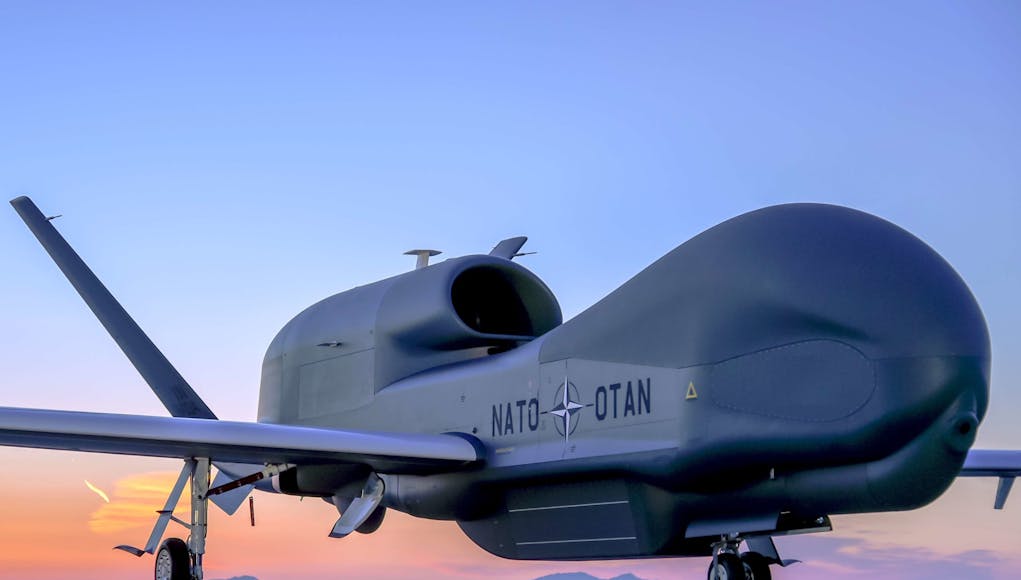


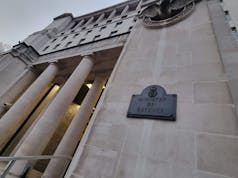
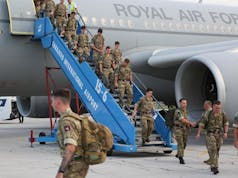




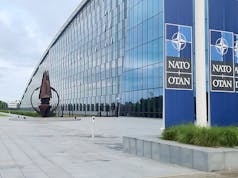
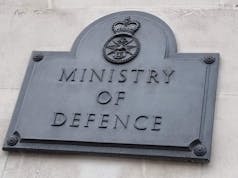

Now that the Orcs are gone it’s time for NATO to evolve, need to get rid of the week links of Hungry and Turkey and add in the big global democracies like Australia and Japan.
NATO has never been so strong and so week at the same time.
That would turn Nato into a global military power, forcing Western influence on nations that do not want to be westernised. Capitilism and Amercian influence are temporary and not sustainable, they need slave nations manufacturing cheap goods, and foreign oil. We are seeing cracks getting deeper and deeper, as the populations in the east strive to higher living standards. The West uses NATO to flex its muscles, but has shown weakness in Ukraine, as China watches on.
And China watching on realises that Russia is utterly useless, and can’t invade jack shit. Rubbish equipment, Rubbish training, and terrible tactics. And China realises how far ahead the West still is with military technology. Bet they wish they hadn’t bought those crappy Russian jet engines to put in the back of its fighters.
Well said mate.
With respect, you miss the point totally. No matter how poor the Russian military are, Nato will not risk direct military involvement due to a nuclear war. China, seeing this, can guess that, they can invade Taiwan, without any major direct western involvement. The West will not risk nuclear war with China, so why would the US fight a conventional war with China? What should of happened, with hindsight, was as soon as Russia built up it forces on the border, Nato should of enforced a no fly zone and hosted military exercises in Ukraine. This would of prevented the invasion maybe?
I have to agree and disagree. Maybe if NATO had acted sooner, war could have been prevented. But at what cost? Maybe NATO stepping in sooner might have made things even worse, and escalated the conflict even quicker. We will never know the answer to that question. I think the Wests actions will definitely have made China think twice about Taiwan. Taiwan is a well equipped nation prepared for conflict. They have been dealing with this constant threat for decades. It would not be easy for China. And they lack any conflict experience. The global economic effects would be disastrous for the Chinese. Deep down, they no it’s not worth it.
Hi Robert. For me, the lesson is that NATO should have onboarded The Ukraine as a member an immediate consequence of Russia’s annexation of the Crimea. On balance, it is highly unlikely Putin would have dared to invade the Ukraine.
I agree. The Wests biggest mistakes happened 10+ years ago.
Cheers Robert, enjoy the weekend!
You too mate 👍🍻
I think the lesson of ukraine is that you have to deploy & threaten the use of force in support of friends & allies to deter major dicatorships from swallowing up neighbours. That means Taiwans’ friends should pledge support in the event of any attempt by the PRC to invade. Nukes mean we do NOT buckle & stand off when a nuclear power invades friends, rather it means we can simply say nuke us & we’ll nukle you, which cancels the feared threat.
Biggest mistake we made was when Biden & Boris both said “Please don’t invade Ukraine, but if you do we’ll not commit forces to assist Ukraine.” That gave Putin a green light! Idiotically weak, naive leadership; the very antithesis of deterent & brinkmanship. Thank goodness Ukraine fought so well & Russian forces were so poor.
We just need to educate or pressure Hungary and Turkey to agree to Sweden joining.
And Taiwan.
A brief guide to NATO: As it expands, it will lead to resentment from non members, as per the Treaty of Versailles, leading to World War 3.
The Treaty of Versailles emasculated Germany, even though it wasn’t defeated totally on the battlefield. That led to resentment, upon which the NAZI party capitalised along with the financial collapse of the late 20s. With the great depression, the League of Nations failed to hold Germany to its treaty obligations.
NATO is a collective, defensive alliance – the two are in such stark contrast of situation and intent that your comparison makes no sense. Versailles specifically targeted Germany – which non-NATO members are specifically emasculated by NATO?
Russia. The Cold War ended, and Nato kept on expanding around it. The proposed missile defence shield in Romania the last straw. Russia had to protect it’s interests, and it sees Ukraine in nato as a major threat. I AM NOT defending Russian actions in Ukraine, but I can understand why it feels isolated. When the Cold War ended nato should of disbanded, and a much stronger push towards nuclear disarmament should of been made. I am merely trying to understand Putin’s reasoning, what is the aggressor thinking?
You have different views and we will not agree which is allowed in the West, after years of being a neutral, Finland wanted to join nato simply because of Russian aggressiveness.
The Eastern expansion of NATO post-Cold War did not occur “around Russia”. It occurred to the West of Russia in 1999 and 2004 (also implicitly as part of German reunification). Between 2004 and this year, NATO countries have abutted 750 miles out of the 14,000 miles of Russia borders. Hardly hemming Russia in!
In the 1990s Russia had created the CIS grouping with eleven countries they hoped would be sympatico (two never ratified, one later dropped out). They could have left well alone at that stage, but first Yeltsin then Putin decided that Russia’s interests required enforcing control over the CIS and over other countries that wanted nothing to do with Russia: all down to dreams of the former Soviet Empire, whose collapse they blamed on Gorbachov. The Russian kleptocracy salami sliced in Moldova and the Caucasus, invaded Georgia and the Ukraine, and interfered with democratic politics in many countries, not excluding the attempted assassination of a head of state.
Those are the interests it’s having touble extending into NATO countries. Interests it has no right to enforce and ones we have no right to support. If they feel agrieved they are denied the unfettered right to mess with other soveriegn countries, s***w them!
Simple answer. He thinks and behave like most historical dictators did in the previous century. Franco, Mussolini, Stalin, Hitler …take your pick.
No you’re not, a bit like johnskie, you are peddling weak propaganda under the guise of impartiality, when in fact you’re not allowed to type derogatory or negative posts in regard to Putin! Grow up, your efforts are weak but sadly amusing. The main amusement comes from the various trolls that turn up, seem to think they cannot be seen as trolls! And Putin is a nonce nobber, don’t you think?
Well said Bob A.👌
disagree – it is likely to attract more membership applications. Not at all this a comparison to The treaty of Versailles, which was a punitive remedial policy applied to Germany.
It’s looking more positive for NATO countries who seem to be acquiring additional military hardware, I wonder if we could place an order for some of these too.
Paris Air Show 2023: Airbus looks to close out follow-on Eurofighter orders for Germany, Spain20 JUNE 2023
Would make a lot of sense to order 36 tranche 4 Eurofighters. More Wedgetails and say 6-7 more Poseidon MPA. If we do those key 3 aircraft type the RAF will be in a reasonable position.
Agreed, Germany and other NATO members are currently making funds available, we should be doing the same.
“The luWES ‘system of systems’ is designed to deliver co-ordinated and synchronised SEAD effects across a broad frequency spectrum. As part of this construct, the Luftwaffe is planning to acquire 15 Eurofighter EK aircraft to replace its current Tornado ECR aircraft from around 2030.
The Spice 250 ER is a network-enabled, turbojet-powered stand-off weapon originally developed for long-range precision strike missions at ranges out to 150 km. Rafael and Diehl in June 2022 signed an agreement providing for Diehl to undertake production of the Spice 250 ER and the shorter-range Spice 250 glide weapon.”
“Leonardo will deliver a new tactical RAT 31DL/M long-range deployable air-defence radar (DADR) to the German Air Force following an agreement with the NATO Support and Procurement Agency (NSPA), the company announced at the Paris Air Show 2023 held between 19 and 25 June.
RAT 31DL/M is an L-band (NATO D-band; 1–2 GHz) long-range, transportable, 3D air-defence radar specifically designed to support NATO peacekeeping forces in the field.
It has a range of up to 400 km and can be quickly deployed (under 120 minutes) as a front-line battlefield system to survey and protect territory and assets from all airborne threats.”
NEWS FROM THE FLIGHT DECK
Can he work it out?
GAO Report on F-35 Joint Strike Fighter Cost Growth, Engine ModernizationJune 2, 2023 11:17 AM
The F-35 program’s total procurement costs have increased by $13.4 billion since the last cost estimate in 2019. This is, in part, due to DOD spreading out aircraft purchases and adding years to its delivery schedule.
Contractors also continue to have challenges with delivering aircraft and engines on time, but they are working to address these issues.
Further, DOD is 5 years into a development effort to modernize the F-35’s capabilities. This effort, known as Block 4, is experiencing developmental delays for important technology updates.
Block 4 costs also grew to $16.5 billion, an increase of more than $1 billion since GAO last reported.
The program is exploring options for modernizing the F-35’s engine and thermal management system that is used to cool aircraft subsystems that generate heat.
The program plans to manage this multi-billion dollar effort under the existing program, which is scheduled to transition to sustainment soon and that would limit congressional oversight.
The cooling system is overtasked, requiring the engine to operate beyond its design parameters. The extra heat is increasing the wear on the engine, reducing its life, and adding $38 billion in maintenance costs.
LINK
With the current budget pressure’s, we know it’s not going to happen. Especially when we are spending 2.35Bn upgrading the Typhoons we currently possess.
And now what about UK? As per Mr Bell below, like too see an upgrade to the Typhoon T1to T4+ or get new ones.
Agreed, new would be good!
The Defence Select Committee has asked defence manufacturer BAE Systems to come back with answers on whether Typhoon fighter jets could be upgraded out of retirement after 2025, in case of a “national emergency”.
Up to this point, the firm has never been asked to produce any design studies on bringing out-of-action Typhoons back to life in a crisis, claims the BAE’s air branch Chief Operating Officer Ian Muldowney, but the committee claims timelines drawn up pre-Ukraine war must be revisited.
The UK’s current plans to phase out 30 Tranche 1 (the most basic batch of Eurofighter Typhoon, flown by the UK since the early 2000s) halfway through the decade prompted questions from the committee over a potential future gap in defence capability.
In the case of a “come as you are” war and regardless of costs, BAE doesn’t know how long Tranche 1 crisis upgrades would take, but building one from scratch would take four years.
Unsure if Russia would grant its enemy that grace period and citing a seven-year lead time for F-35s, Mr Francois has asked the firm to write back with answers.
The 2021 Defence Command Paper, a playbook for UK defence moving forward in coming decades, brought the Tranche 1 retirement date forward five years from 2015’s ambitions, and the outgoing 30 planes will have flown less than half of the airframe’s maximum 6,000 hours.”
Hi folks hope all is well.
Very interesting article. Apparently the UK is at risk of loosing it’s status in NATO if the army gets any smaller.
The Telegraph article:
This according to Gen Sir Tim Radford said Britain risked losing its ‘fortunate’ position in the alliance if it did not invest for the future.
We know the army is not one of the largest, however, it certainly has the professionalism, experience, best equipped and one of the best trained in the world. The last time I checked, it’s the UK army that is the first to support the Ukrainian military. I don’t recall any other NATO member being at the front for support!
Nonetheless, the General does have a point about size and this does need addressing.
Cheers,
George
“Article 5 does not necessarily commit an ally to a military response”…..
Don’t tell Germany that, the Germans will fully commit to a strongly worded letter….
If the MOD and Army bods in high places all know this why isn’t something being done about it? Is the British Army being remoulded too far into being more a highly mobile, landing expeditionary force while the European land armies upgrade their own forces some quite substantiallly?Getting faster, more agile and smarter, but are we actually getting stronger? Like Poland is and even Ukraine, the later now ordering 1000 CV90s and getting Leopard tanks. Both understandable and strength to them too. Hope the British Army gets a good quantity of tanks and a good mix of wheeled and tracked vehicles plus some extra Shorad.